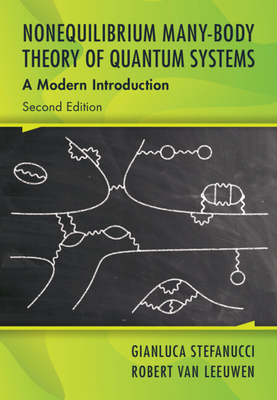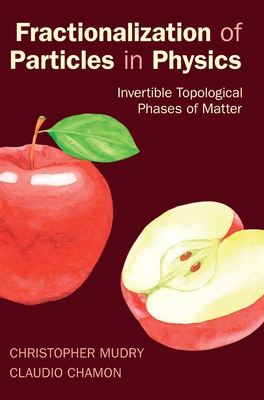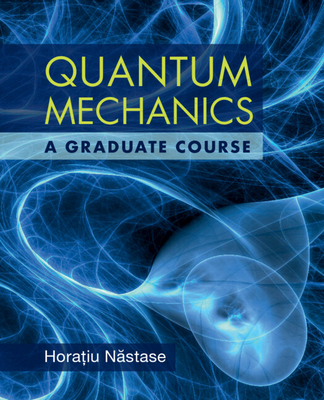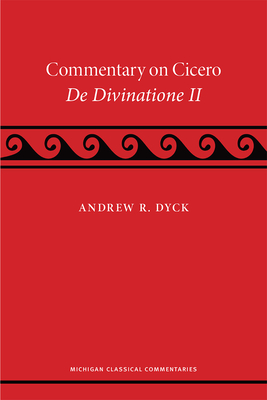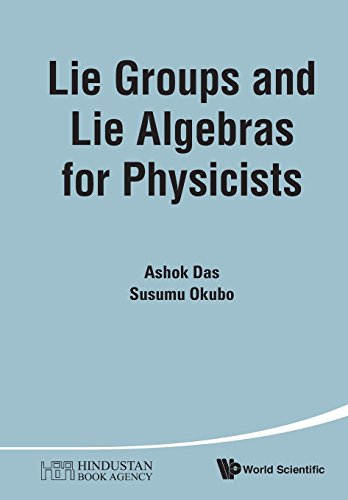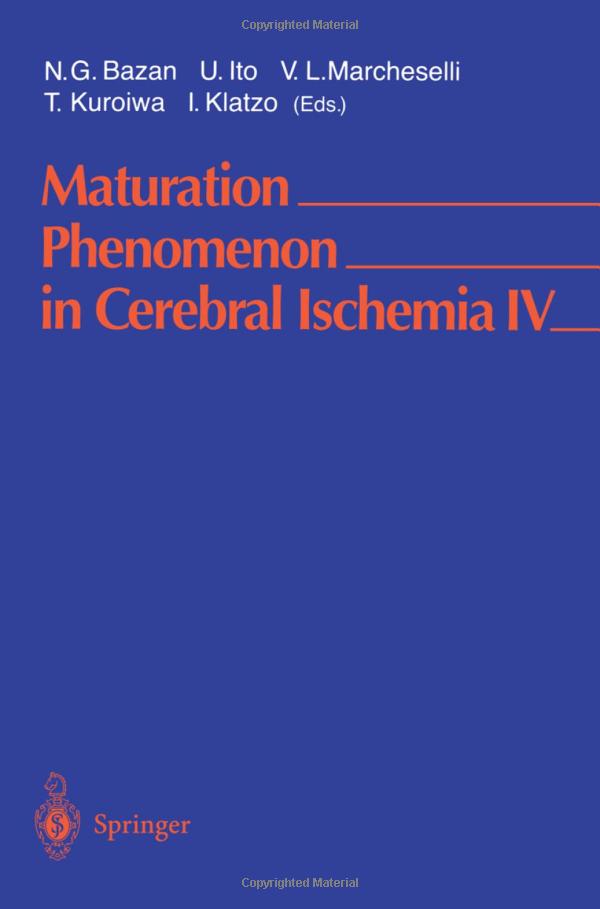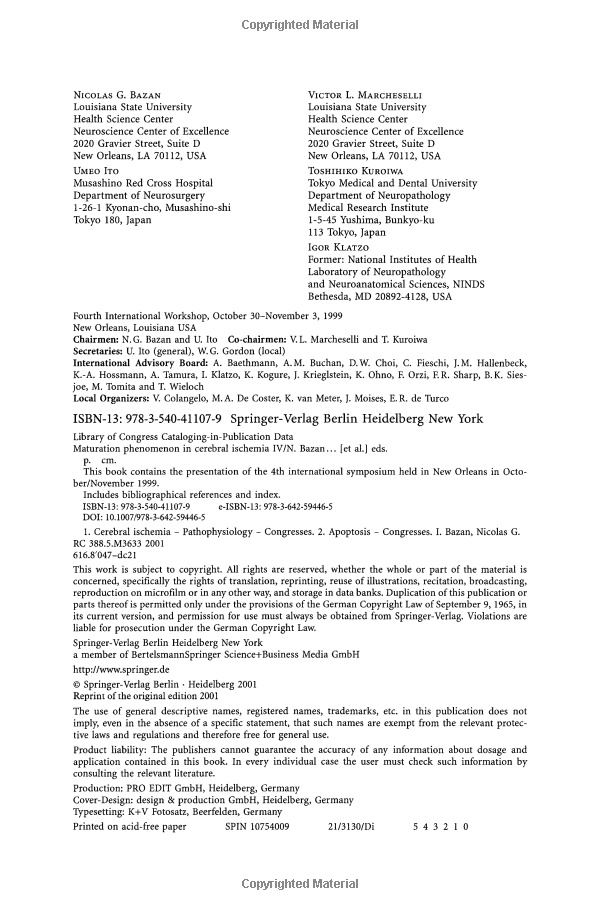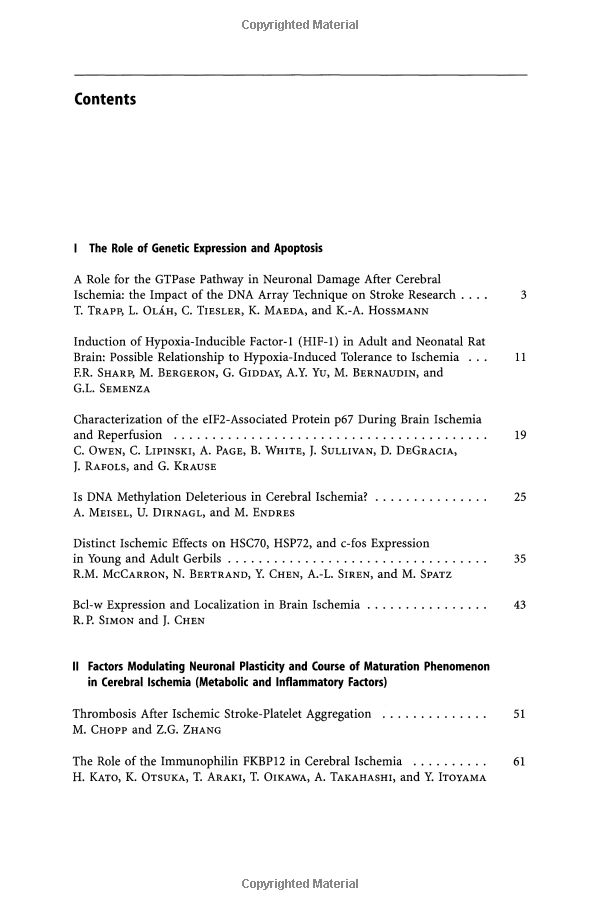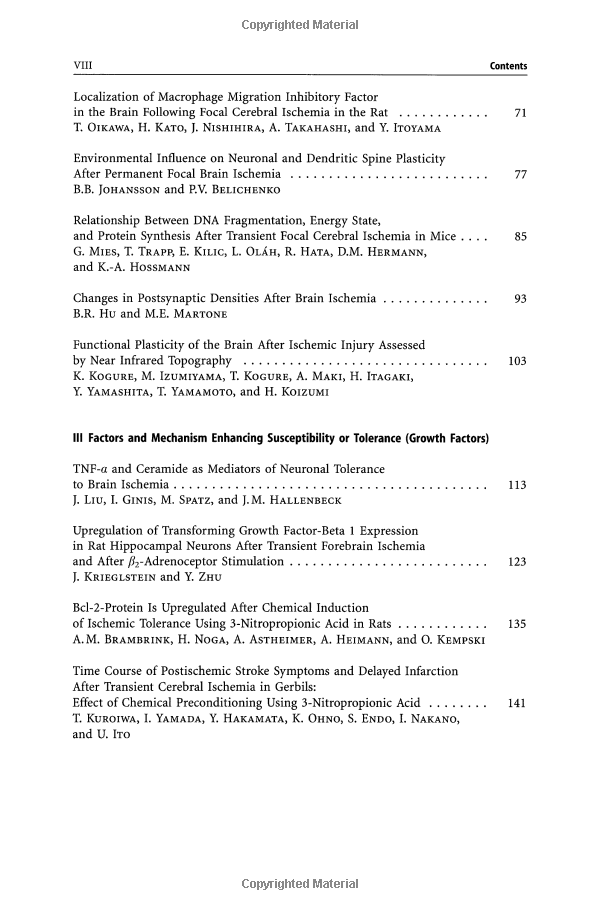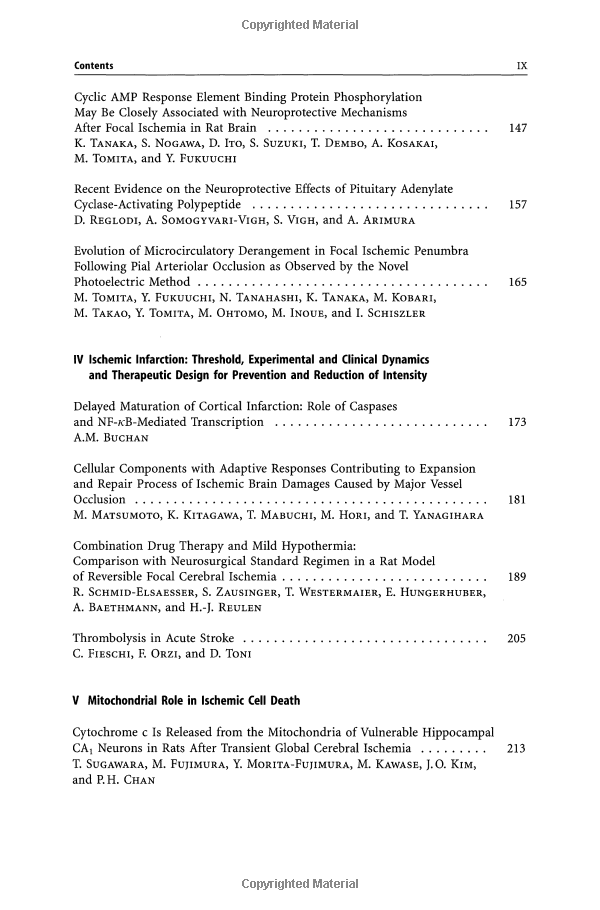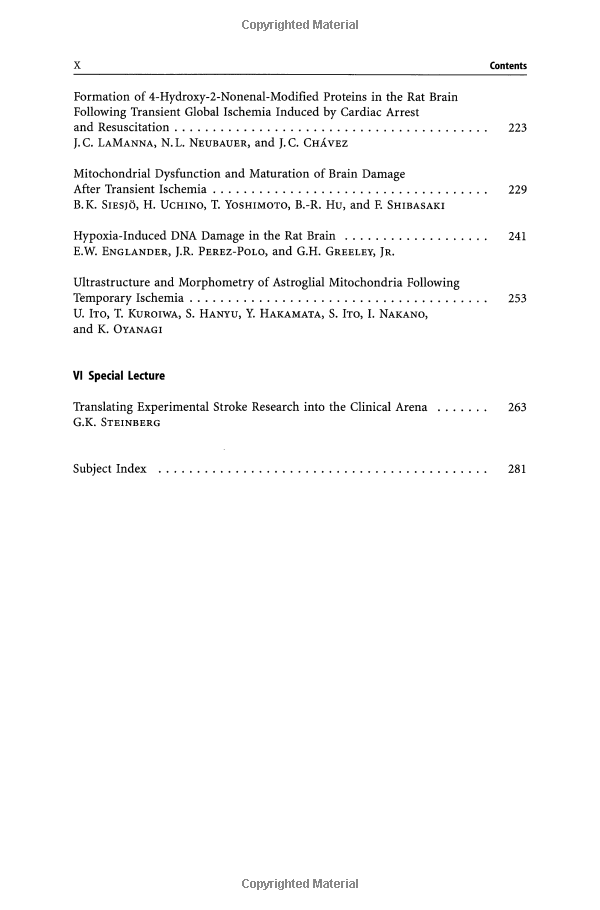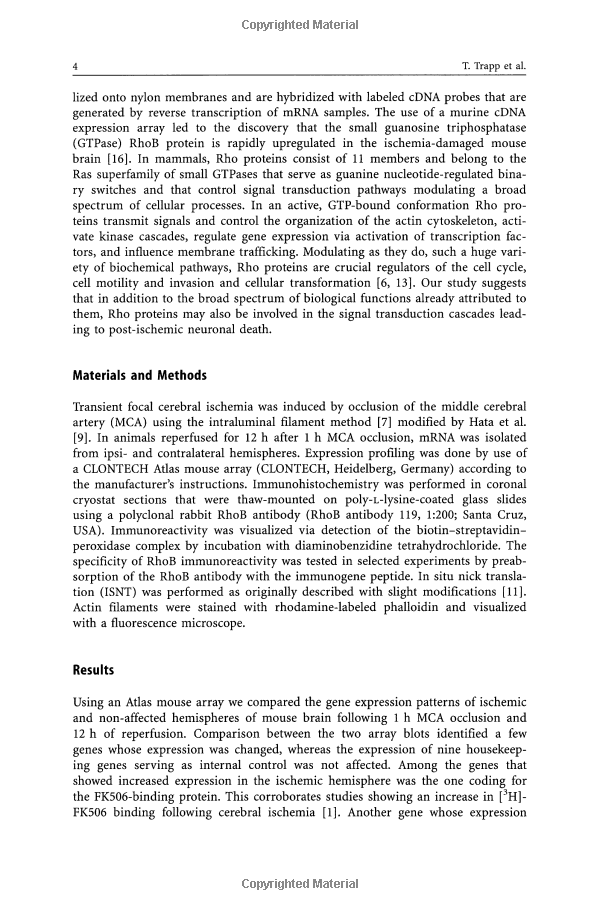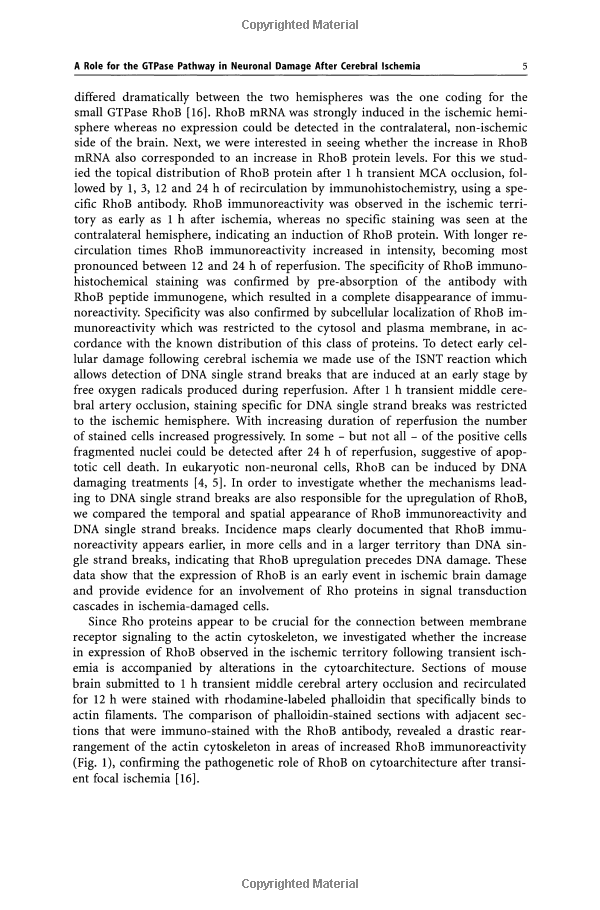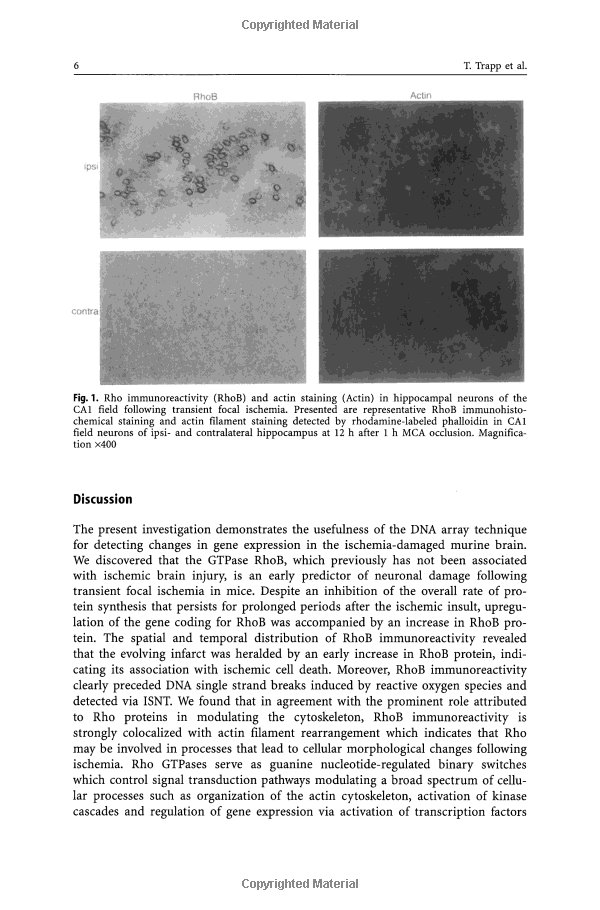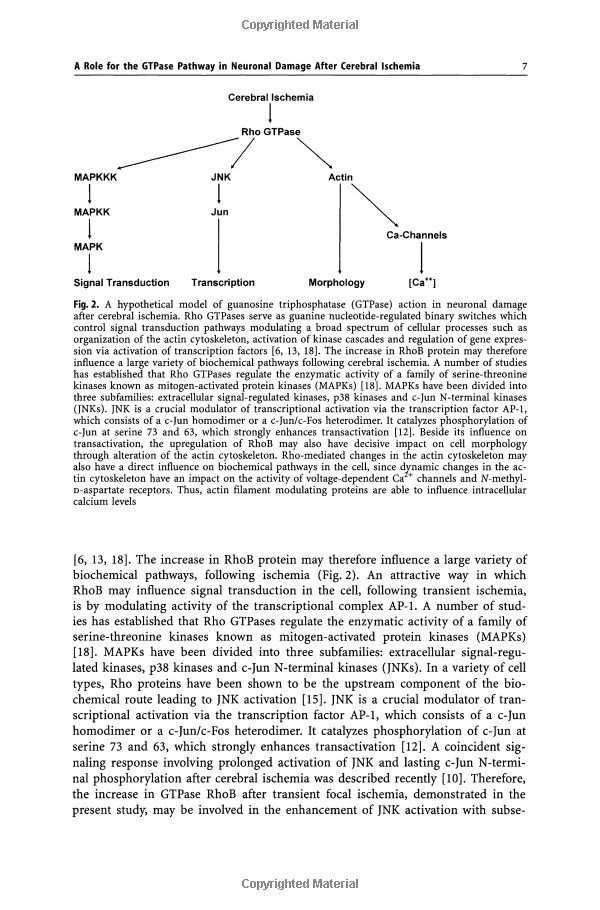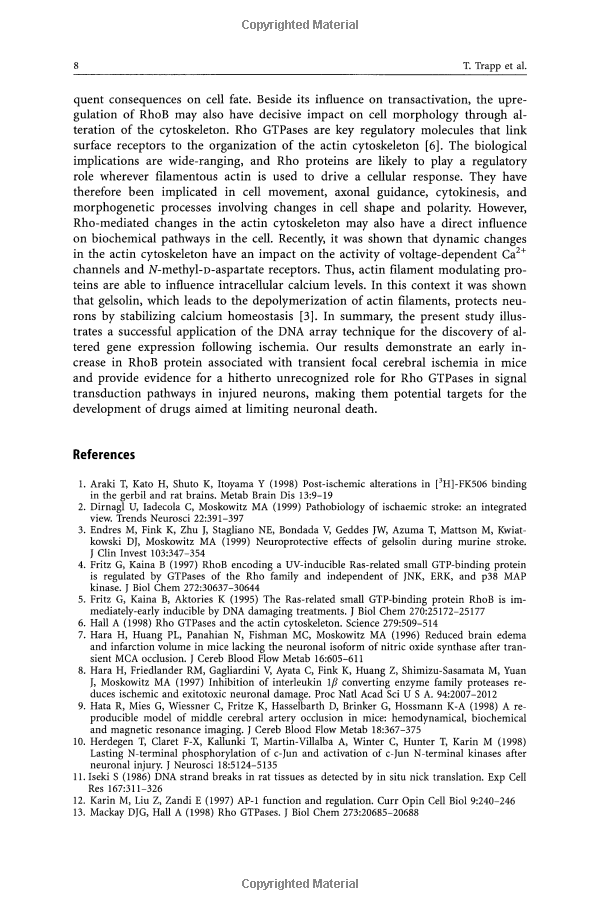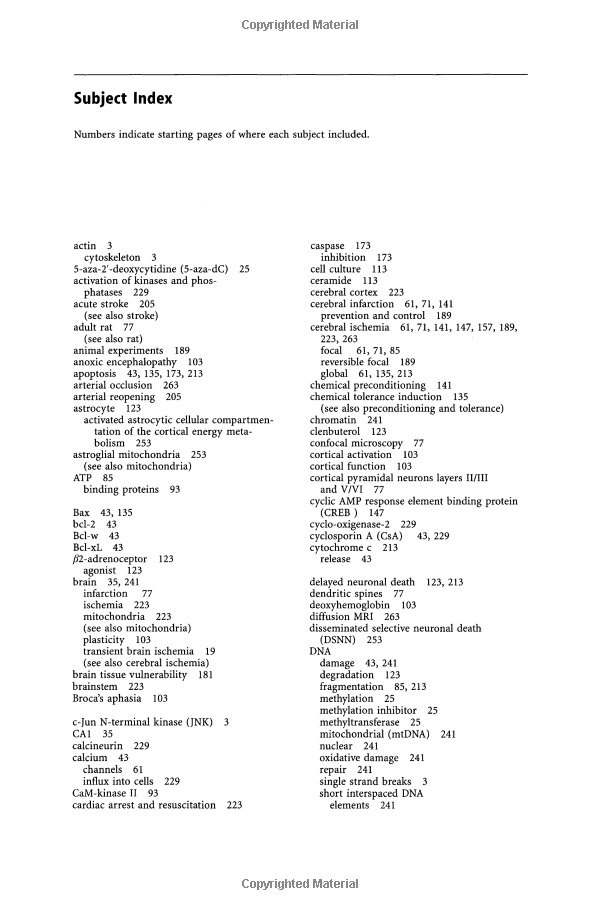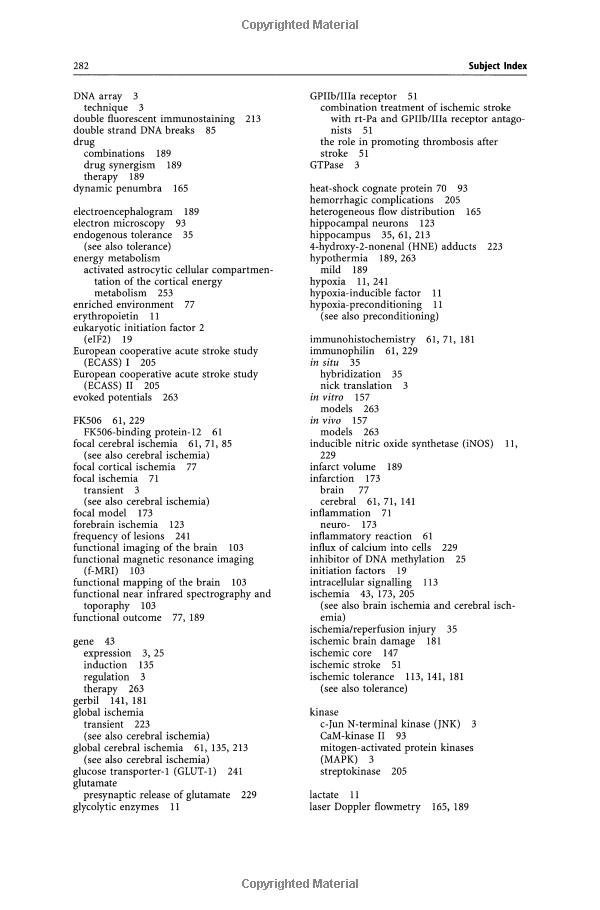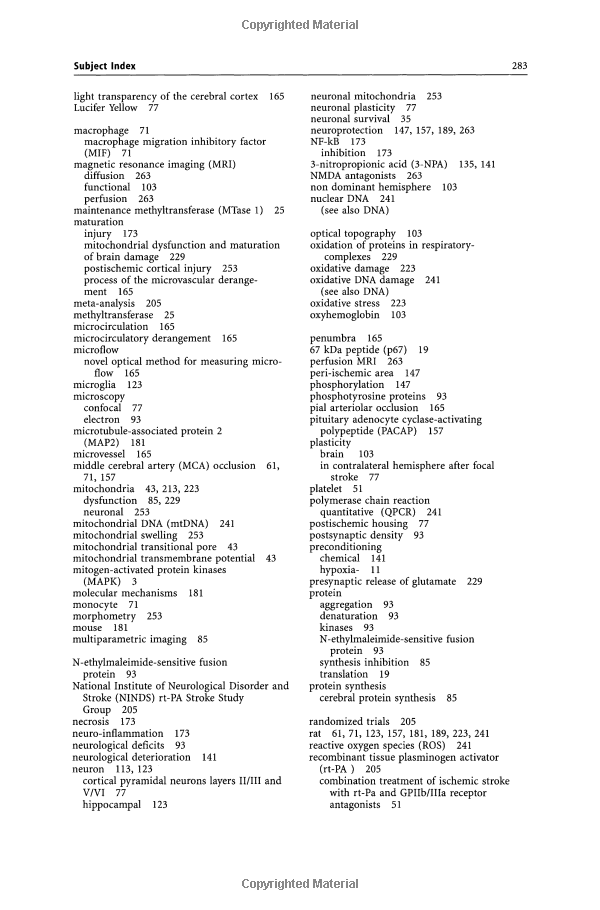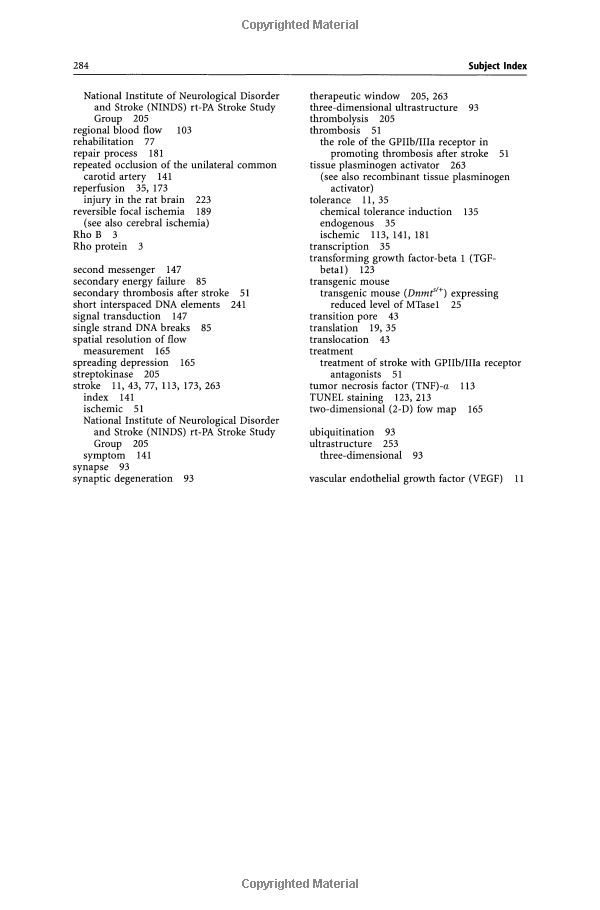图书简介
The maturation phenomenon, first described by Ito et al. in 1975, refers to postischemic changes that develop hours or days after an ischemic insult. The delayed neuronal death of CA1 pyramidal cells of the hippocampus is a classic example. The report of the phenomenon boosted research in the field, as it became evident that ischemic damage is not a sudden event, but a process potentially susceptible to therapeutic intervention. Since then a growing number of studies have improved our knowledge on mechanisms of cell death and recovery. This volume contains the presentations of the 4th international symposium, held in New Orleans in October/November 1999, grouped in sections covering apoptosis and/or necrosis, neuronal recovery vs. death, and protection against infarction. It outlines the present status of investigations and provides further stimulation for research in this field.
I The Role of Genetic Expression and Apoptosis.- A Role for the GTPase Pathway in Neuronal Damage After Cerebral Ischemia: the Impact of the DNA Array Technique on Stroke Research.- Induction of Hypoxia-Inducible Factor-1 (HIF-1) in Adult and Neonatal Rat Brain: Possible Relationship to Hypoxia-Induced Tolerance to Ischemia.- Characterization of the eIF2-Associated Protein p67 During Brain Ischemia and Reperfusion.- Is DNA Methylation Deleterious in Cerebral Ischemia?.- Distinct Ischemic Effects on HSC70, HSP72, and c-fos Expression in Young and Adult Gerbils.- Bcl-w Expression and Localization in Brain Ischemia.- II Factors Modulating Neuronal Plasticity and Course of Maturation Phenomenon in Cerebral Ischemia (Metabolic and Inflammatory Factors).- Thrombosis After Ischemic Stroke-Platelet Aggregation.- The Role of the Immunophilin FKBP12 in Cerebral Ischemia.- Localization of Macrophage Migration Inhibitory Factor in the Brain Following Focal Cerebral Ischemia in the Rat.- Environmental Influence on Neuronal and Dendritic Spine Plasticity After Permanent Focal Brain Ischemia.- Relationship Between DNA Fragmentation, Energy State, and Protein Synthesis After Transient Focal Cerebral Ischemia in Mice.- Changes in Postsynaptic Densities After Brain Ischemia.- Functional Plasticity of the Brain After Ischemic Injury Assessed by Near Infrared Topography.- III Factors and Mechanism Enhancing Susceptibility or Tolerance (Growth Factors).- TNF-? and Ceramide as Mediators of Neuronal Tolerance to Brain Ischemia.- Upregulation of Transforming Growth Factor-Beta 1 Expression in Rat Hippocampal Neurons After Transient Forebrain Ischemia and After ?2-Adrenoceptor Stimulation.- Bcl-2-Protein Is Upregulated After Chemical Induction of Ischemic Tolerance Using 3-Nitropropionic Acid in Rats.- Time Course of Postischemic Stroke Symptoms and Delayed Infarction After Transient Cerebral Ischemia in Gerbils: Effect of Chemical Preconditioning Using 3-Nitropropionic Acid.- Cyclic AMP Response Element Binding Protein Phosphorylation May Be Closely Associated with Neuroprotective Mechanisms After Focal Ischemia in Rat Brain.- Recent Evidence on the Neuroprotective Effects of Pituitary Adenylate Cyclase-Activating Polypeptide.- Evolution of Microcirculatory Derangement in Focal Ischemic Penumbra Following Pial Arteriolar Occlusion as Observed by the Novel Photoelectric Method.- IV Ischemic Infarction: Threshold, Experimental and Clinical Dynamics and Therapeutic Design for Prevention and Reduction of Intensity.- Delayed Maturation of Cortical Infarction: Role of Caspases and NF-AKB-Mediated Transcription.- Cellular Components with Adaptive Responses Contributing to Expansion and Repair Process of Ischemic Brain Damages Caused by Major Vessel Occlusion.- Combination Drug Therapy and Mild Hypothermia: Comparison with Neurosurgical Standard Regimen in a Rat Model of Reversible Focal Cerebral Ischemia.- Thrombolysis in Acute Stroke.- V Mitochondrial Role in Ischemic Cell Death.- Cytochrome c Is Released from the Mitochondria of Vulnerable Hippocampal CA1 Neurons in Rats After Transient Global Cerebral Ischemia.- Formation of 4-Hydroxy-2-Nonenal-Modified Proteins in the Rat Brain Following Transient Global Ischemia Induced by Cardiac Arrest and Resuscitation.- Mitochondrial Dysfunction and Maturation of Brain Damage After Transient Ischemia.- Hypoxia-Induced DNA Damage in the Rat Brain.- Ultrastructure and Morphometry of Astroglial Mitochondria Following Temporary Ischemia.- VI Special Lecture.- Translating Experimental Stroke Research into the Clinical Arena.
Trade Policy 买家须知
- 关于产品:
- ● 正版保障:本网站隶属于中国国际图书贸易集团公司,确保所有图书都是100%正版。
- ● 环保纸张:进口图书大多使用的都是环保轻型张,颜色偏黄,重量比较轻。
- ● 毛边版:即书翻页的地方,故意做成了参差不齐的样子,一般为精装版,更具收藏价值。
关于退换货:- 由于预订产品的特殊性,采购订单正式发订后,买方不得无故取消全部或部分产品的订购。
- 由于进口图书的特殊性,发生以下情况的,请直接拒收货物,由快递返回:
- ● 外包装破损/发错货/少发货/图书外观破损/图书配件不全(例如:光盘等)
并请在工作日通过电话400-008-1110联系我们。
- 签收后,如发生以下情况,请在签收后的5个工作日内联系客服办理退换货:
- ● 缺页/错页/错印/脱线
关于发货时间:- 一般情况下:
- ●【现货】 下单后48小时内由北京(库房)发出快递。
- ●【预订】【预售】下单后国外发货,到货时间预计5-8周左右,店铺默认中通快递,如需顺丰快递邮费到付。
- ● 需要开具发票的客户,发货时间可能在上述基础上再延后1-2个工作日(紧急发票需求,请联系010-68433105/3213);
- ● 如遇其他特殊原因,对发货时间有影响的,我们会第一时间在网站公告,敬请留意。
关于到货时间:- 由于进口图书入境入库后,都是委托第三方快递发货,所以我们只能保证在规定时间内发出,但无法为您保证确切的到货时间。
- ● 主要城市一般2-4天
- ● 偏远地区一般4-7天
关于接听咨询电话的时间:- 010-68433105/3213正常接听咨询电话的时间为:周一至周五上午8:30~下午5:00,周六、日及法定节假日休息,将无法接听来电,敬请谅解。
- 其它时间您也可以通过邮件联系我们:customer@readgo.cn,工作日会优先处理。
关于快递:- ● 已付款订单:主要由中通、宅急送负责派送,订单进度查询请拨打010-68433105/3213。
本书暂无推荐
本书暂无推荐

